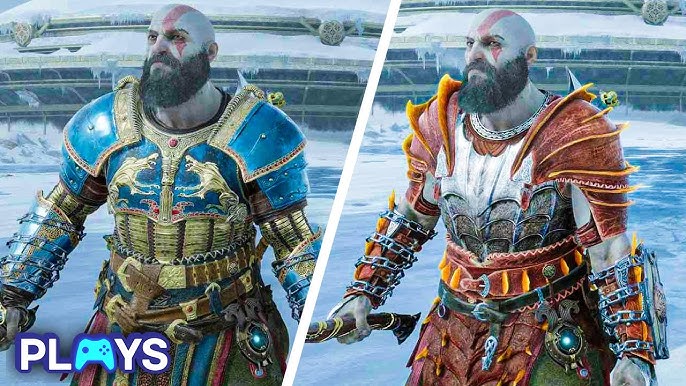Christopher Judge, the iconic voice behind Kratos in the acclaimed God of War series, recently opened up about how working on the game transformed not just his career, but his personal perspective on masculinity and strength. His experience on the set profoundly impacted him, offering lessons that went far beyond acting.

Christopher Judge: More Than Just the Voice of Kratos
Christopher Judge’s portrayal of Kratos, the fierce Spartan warrior turned reluctant god-slayer, has been celebrated by fans and critics alike. However, Judge’s journey with the character was deeply personal. In a heartfelt discussion during the God of War 20th-anniversary cast meeting, Judge shared insights on how the collaborative and respectful environment on set challenged his previous understanding of what it truly means to be a man.
A Culture of Respect and Equality on the God of War Set
Breaking Down Hierarchies
One of the most striking revelations Judge shared was the absence of a rigid hierarchy during the production. Unlike many traditional film or gaming projects where there is a clear chain of command, the God of War team fostered an atmosphere where every voice mattered.
“There was no hierarchy here from day one. Everyone respected each other and spoke as equals,” Judge recalled. Even Cory Barlog, the game’s director, actively listened to everyone on the team, which was a surprising and refreshing experience for Judge.
This democratic culture helped create a collaborative environment that not only improved the quality of the game but also created a supportive space where Judge could grow personally.
Personal Struggles and Transformation
From Turmoil to Clarity
Judge’s journey to embody Kratos coincided with a challenging period in his life. He had recently made significant personal changes, including giving up alcohol and attending therapy after two arrests. This period of self-reflection made him reevaluate his ideas about masculinity, strength, and vulnerability.
“I realized that strength is not about suppressing others, but about being able to listen, help, and support.”
This new outlook aligned perfectly with the themes of the latest God of War games, which explore Kratos not only as a warrior but also as a father and mentor. Judge found that the team’s dynamic mirrored this philosophy of compassionate strength.
The Power of a United Team
Smiles, Support, and Genuine Connection
Judge described the God of War set as a place filled with positivity and mutual support. The team arrived every day ready to work but also genuinely cared for each other.
“Everyone came in with a smile. No one complained. And it was the first time I felt cared for, supported, and truly connected.”
This environment allowed Judge to experience firsthand the strength that comes from unity, respect, and kindness—qualities that shaped his understanding of what it means to be a man.
What Christopher Judge’s Experience Teaches Us About Masculinity
Redefining Strength in Modern Times
Judge’s reflections highlight a broader cultural shift regarding masculinity. Traditionally, society often equated manliness with toughness, dominance, and emotional suppression. However, experiences like those on the God of War set prove that strength can come from empathy, vulnerability, and collaboration.
The Importance of Emotional Intelligence
Listening and supporting others are crucial skills that define true leadership and strength. Judge’s story is a powerful reminder that these qualities are essential for both personal growth and professional success.
Why God of War Is More Than Just a Game
The God of War franchise has always pushed the boundaries of storytelling in gaming, but Christopher Judge’s experience reveals that its impact extends beyond entertainment. It fosters an environment where real human values are practiced and celebrated, influencing everyone involved.
Lessons From Kratos and Christopher Judge
Christopher Judge’s transformation through his role as Kratos is a testament to the power of a respectful, supportive team culture. His journey shows that being a man is less about physical dominance and more about emotional strength, empathy, and connection. This new definition of masculinity offers a hopeful vision for the future—one where strength and kindness coexist.




